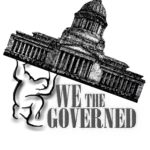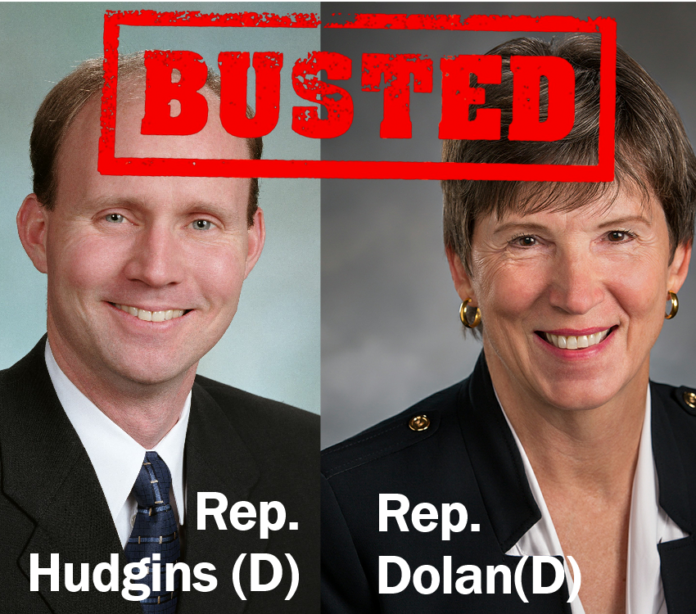On Friday, six Democratic legislators in Washington proposed a bill (HB 2938) which would exempt them from legal liability for violating the state’s campaign finance laws. All six of them already violated the state’s campaign finance law (RCW 42.17A). They are angry. Rather than fix some clear deficiencies in the existing law, they desire to punish anyone who dares to expose their violations of the law. They apparently support further weaponizing the state’s campaign finance laws so that it can be a partisan tool used only to attack their political enemies and gamed to protect their political friends. Mostly, they want to stop this author from exposing the near universal violations of the state’s campaign finance laws by political insiders.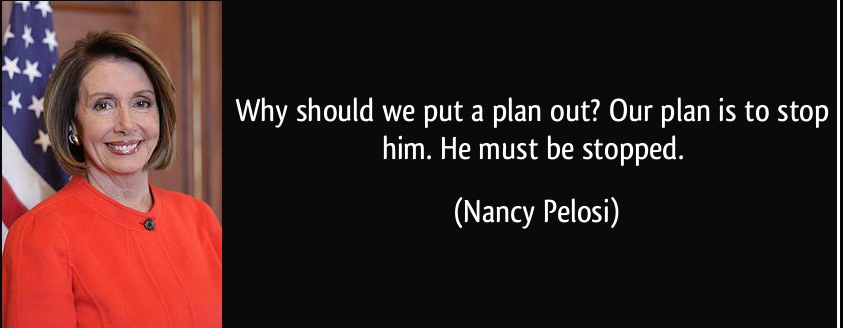
Stopping Glen Morgan at any cost – even a bad bill
According to multiple sources inside the Washington State Democratic Party, the proposed bill is called the “Stop Glen Morgan” bill. This bill is a great example of political insiders prioritizing an effort to protect themselves from transparency requirements, while punishing all who dare look at them. The six Democrat legislators who sponsored this bill are as follows: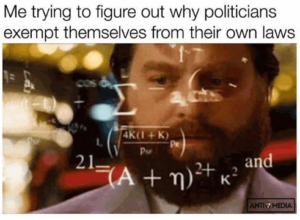
- Representative Zack Hudgins (11th LD, South Seattle/Tukwila/Renton). His violations of the state’s campaign finance laws are detailed on the Public Disclosure Commission website (linked here). Hudgins is also chair of the house state government, elections, information and technology committee where this bill will have a public hearing on Wednesday, January 31st at 1:30pm. (in this author’s opinion, while Rep. Hudgins did violate the law, based on his response to this complaint, his violations are fewer than normal)
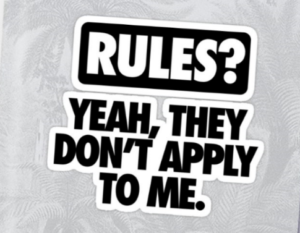
- Representative Laurie Dolan (22nd LD, Olympia). Her violations are detailed at the PDC (linked here and here). Dolan is also on the state government and elections committee. Her campaign was also partly funded by racist cult leader JZ Knight (see more here)
- Representative Ruth Kagi (32nd LD, Lynnwood, Edmonds, Shoreline). Her campaign finance violations are linked here
- Representative Timm Ormsby (3rd LD, Spokane). His campaign finance violations are linked here. Ormsby was heavily involved in the Spokane County Democrats who had committed some of the most egregious violations of the state’s campaign finance laws and were sued by the Washington State Attorney General (see here, here, here, and here)
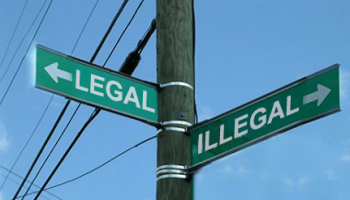
These politicians want THEIR actions to be legal, and THE OTHER GUY’s actions to be illegal, of course. - Representative Gerry Pollet (46th LD, Seattle). Violations linked here. This is the most disappointing sponsor of this bill because Representative Pollet had historically been a strong supporter of campaign transparency laws, but perhaps this has now changed.
- Representative Sharon Wylie (49th LD, Vancouver) was the sixth sponsor. Her violations of the law are detailed here.
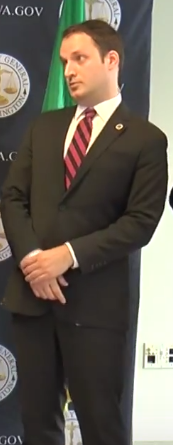
Over the last year, a variety of meetings and discussions have been held throughout the state including both Democrat and Republican treasurers and campaign consultants. These meetings were caused, in part, by the increasing volume of complaints filed by this author and the responsive complaints filed by the Washington State Democratic Party and their strong insider ally Walter Smith, recently employed by the Washington State Attorney General’s office. According to party insiders, Tina Podlodowski dictated to the Democrats in the legislature that the highest priority for them was to “stop Glen Morgan” this session.
There was some general recognition that a variety of changes were needed in the state’s campaign finance laws that would help make the law make sense, remove artificial barriers to entry to the political process, and make it more likely for volunteers and newcomers to the political process to comply with the law. Some changes were also necessary to update the law with modern campaign practices and to create a more level playing field. A variety of specific suggested changes were made by this informal group, and these changes were presented to Rep. Hudgins, among others.
Poorly written bill and the corruption it inspires
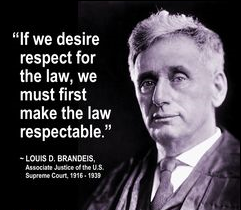 However, instead of implementing these changes, Hudgins, the sponsoring Democratic legislators and partisan staff decided to mostly create a bill that is clearly illegal, gives a free pass to insiders who break the law, create even more uncertainty in the process, and most importantly, punish anyone who dares to point out that the emperor has no clothes. This should be embarrassing.
However, instead of implementing these changes, Hudgins, the sponsoring Democratic legislators and partisan staff decided to mostly create a bill that is clearly illegal, gives a free pass to insiders who break the law, create even more uncertainty in the process, and most importantly, punish anyone who dares to point out that the emperor has no clothes. This should be embarrassing.
Let’s look at some of the more erratic parts of this proposed bill, as follows:
- Punish citizens who dare to point out violations of the campaign finance laws by politicians by creating treble damages and other odd punishments (always “discretionary” so only one side will get the fines). It is hard to even imagine how this would be legal, but it is an effort to ensure that political incumbents and powerful special interests can avoid any type of accountability because they will be able to intimidate and threaten any citizen who dares to question them (see p7)
- Authorize the PDC the ability to issue fines of up to $50,000 (right now, it is capped at $10,000). Due to Republican concerns about hyper-bias expressed in writing in 2016, and by the behavior and public statements of the former PDC director, this should be alarming to Republicans at least. (see section 3 (3) of proposed bill – linked here). Please note that the largest fine possible for first degree murder in Washington State is $50,000 (see RCW 9a.20.021(1)(a)).
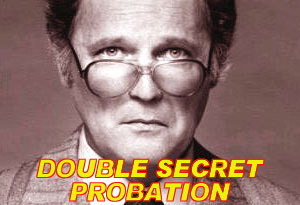
- Create a “claw-back” provision where politically connected politicians and special interests can go back and retrieve fines they have been assessed in court or by the agency and then punish the people who caught them breaking the law in the first place. This probably isn’t Constitutional or legal either, but nobody has ever accused these guys of superior quality control when drafting a bill (Section 6)
- Maximize the complexity of enforcement action and provide ample ability for political insiders to escape financial penalties for violating the law, while they create a Byzantine system of punishment for newcomers to the political process who won’t have political sway over the Attorney General or Public Disclosure offices. (multiple sections – the entire draft is infected with this)
- Make it so that people who lose elections are not subject to the law (section 5, 10 (b) (iii)), and make it so that PACs and politicians can wholesale violate the law and then dissolve without consequences (section 5, 10, b (iv) ). Obviously these would have even more “unintended” consequences.
 While the bill does address a handful of the minor changes that do need reform (partially fixing some of the potential failure to report debt violations, etc), it mostly makes the law worse. Some special interests and politically powerful insiders who believe they exert control over the agencies will appreciate the path this proposed bill provides to avoid compliance with the law. The rest of us little people who want to participate in the political process will just be crushed.
While the bill does address a handful of the minor changes that do need reform (partially fixing some of the potential failure to report debt violations, etc), it mostly makes the law worse. Some special interests and politically powerful insiders who believe they exert control over the agencies will appreciate the path this proposed bill provides to avoid compliance with the law. The rest of us little people who want to participate in the political process will just be crushed.
This proposed bill draft is not redeemable.
Reasonable reforms that should be proposed
Campaign finance laws, by their very nature are an infringement on free speech. They are also popular with most people because they aspire to achieve some type of transparency. Most people, of all political persuasions, want to know who is funding political campaigns. The challenge with campaign finance laws is that they are often written by the incumbents to burden their future challengers. They are also influenced by special interests already in power to insure maximum difficulty for newcomers to challenge them. Additionally, the enforcement side of the process is structured to be controlled by the party in political power. It is well known that fines, decisions to litigate, agency “discretion”, and other structural defects are built into the system to also protect the powerful and cause maximum damage to those who are not insiders.
While there is no utopia, regardless of intentions, there certainly are opportunities to reform the state’s campaign finance laws. However, these reform opportunities should be focused on the following basic ideas:
- Understandability and simplification in the campaign finance laws. Making the laws more complex or hard to understand does not further the goal of transparency. Increasing the complexity will only ensnare newcomers to the political process, and they further serve as a barrier to entry. This would eliminate many of the unintended violations.

Lack of certainty in the enforcement process is not transparent. It is a nightmare, and finally many powerful incumbent politicians are experiencing this for themselves. - Predictability in the enforcement and adjudication of campaign finance violations. Once campaign finance rules are created, the next biggest issue is to clarify how they are enforced, who enforces them, and clarification of the penalties for the failure to comply. Allowing rapid stipulation and adjudication by the PDC according to a predictable and public fine schedule within a few months of a complaint being filed would probably eliminate the vast majority of citizen action notices (lawsuits). This would also serve to ensure that AG lawsuits and Citizen Action Notice lawsuits would be automatically reserved for the more egregious cases.
- Make the process fair for everyone, not tilted in favor of one political party over another or tilted in favor of one special interest over another. This would improve the political participation of newcomers, and begin to restore confidence that the system is fair and level.

- Simplifying the law should be a goal – eliminating pointless and ineffective rules which provide little transparency value, but easily can ensnare those who attempt to involve themselves in the political process. The goal should not be to protect incumbents and the powerful special interests who control the bureaucrats.
In every category of these reforms, this recently proposed bill fails. The politicians who sponsored this bill (assuming they actually read it before signing on) must know this, and the partisan staff (and special interests who influenced them) absolutely understand this as well. The hyper partisan nature of this bill is embarrassing. The Democrats have total control and manage every aspect of every lever of power – they control the state house, the state senate, Governor Inslee’s office, they control the Attorney General’s campaign finance unit (and members of this unit even quit when they have to sue Democrats), even the Public Disclosure Commission is widely viewed as biased in their enforcement. Why are these legislators so determined to remove any possible accounting for their own failure to follow the law?
The quest for power, money, and control is as predictable as the sun rising tomorrow. This is human nature. It doesn’t vanish when a politician is elected to office. It doesn’t disappear when a bureaucrat starts collecting a government paycheck. The rule of law is intended to moderate, check, and prevent these tendencies of human nature. This proposed bill is a good example of what happens when the lawmakers get caught breaking their own laws, and they want to escape the consequences for doing so. These legislators don’t believe the laws should apply to them, only to the rest of us little people.

______________________________________________
OUR CONSTITUTION BEGINS WITH THE PHRASE “WE THE PEOPLE.” IT WAS THE FOUNDER’S INTENT THAT GOVERNMENT BE CREATED BY THE PEOPLE, TO SERVE THE PEOPLE. IT WASN’T THEIR INTENTION FOR THE PEOPLE TO SERVE THE GOVERNMENT. IT WAS ALWAYS INTENDED THAT GOVERNMENT WHICH FAILED TO SERVE THE PEOPLE SHOULD BE “ALTERED OR ABOLISHED.” UNTIL WE RETURN TO THE FOUNDER’S INTENT, WE REMAIN WE THE GOVERNED…
Additional Background articles and documents:
Proposed House Bill HB 2938 (2018)
Original Draft of HB 2938 (2018)
Rep Zack Hudgins Campaign Finance Violations PDC Enforcement Case #24666
Rep Laurie Dolan Campaign Finance Violations PDC Enforcement Case #25123 and Case #25901
Rep Ruth Kagi Campaign Finance Violations PDC Enforcement Case #27208
Rep Timm Ormsby Campaign Finance Violations PDC Enforcement Case #28127
Rep Garry Pollet Campaign Finance Violations PDC Enforcement Case #28125
The Columbian – “Local Democratic PAC plans to disband after complaints”
Washington AG forced to sue labor group, keeps $36k settlement very quiet
Tukwila Firefighters PAC settles campaign finance lawsuit for $23k, promises to do better
Dem Representative Morris settles AG lawsuit quietly and cheaply
AG attorney complains suing Democrat lawbreakers “unfair,” quits to sue Republicans
Jay Manning fined for Cult PAC violations, State Democratic Party pays the tab
Democratic Party attacks campaign transparency in Washington
Dem PACs dissolve after campaign finance complaints
The Scorched wasteland of Washington’s campaign finance laws
